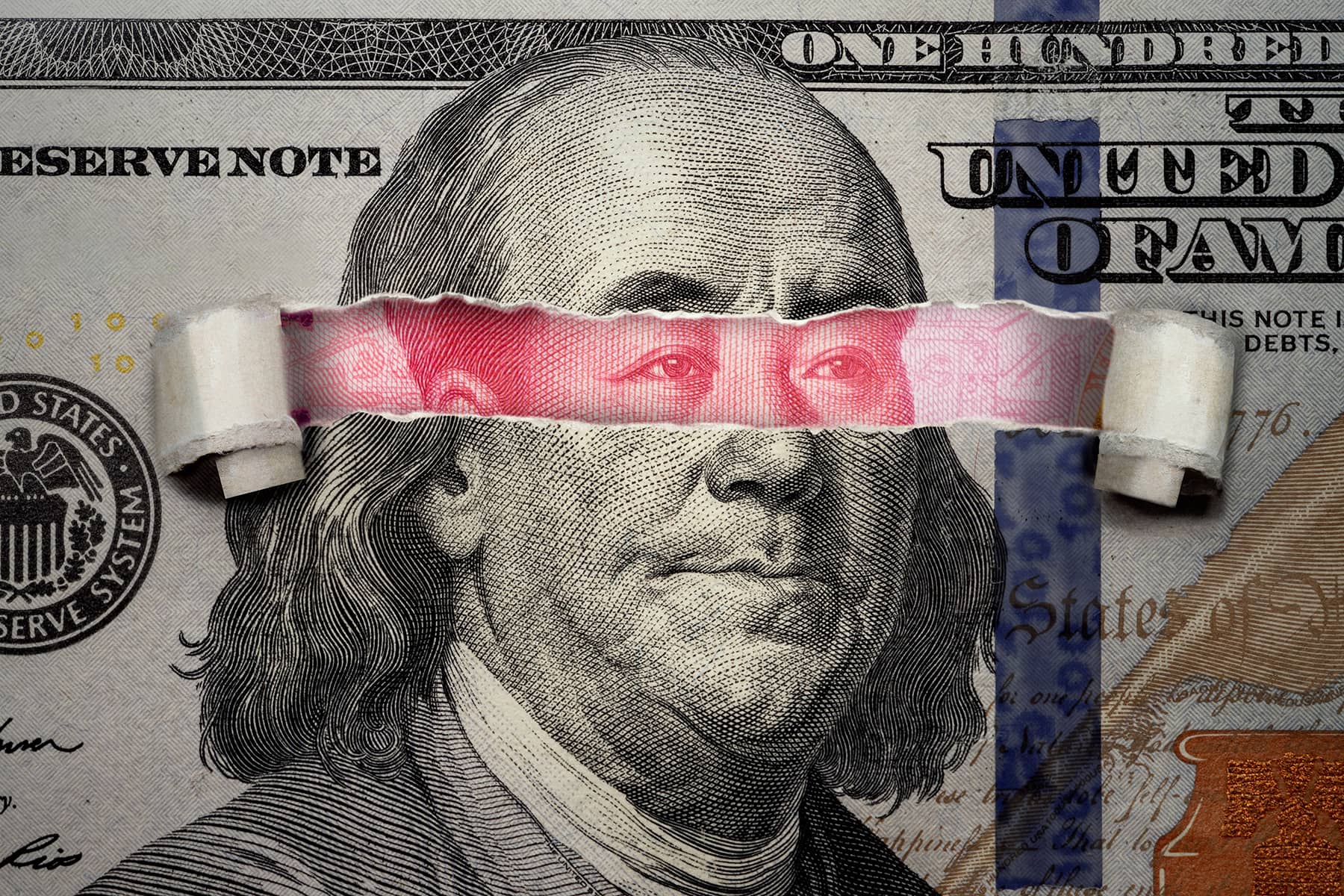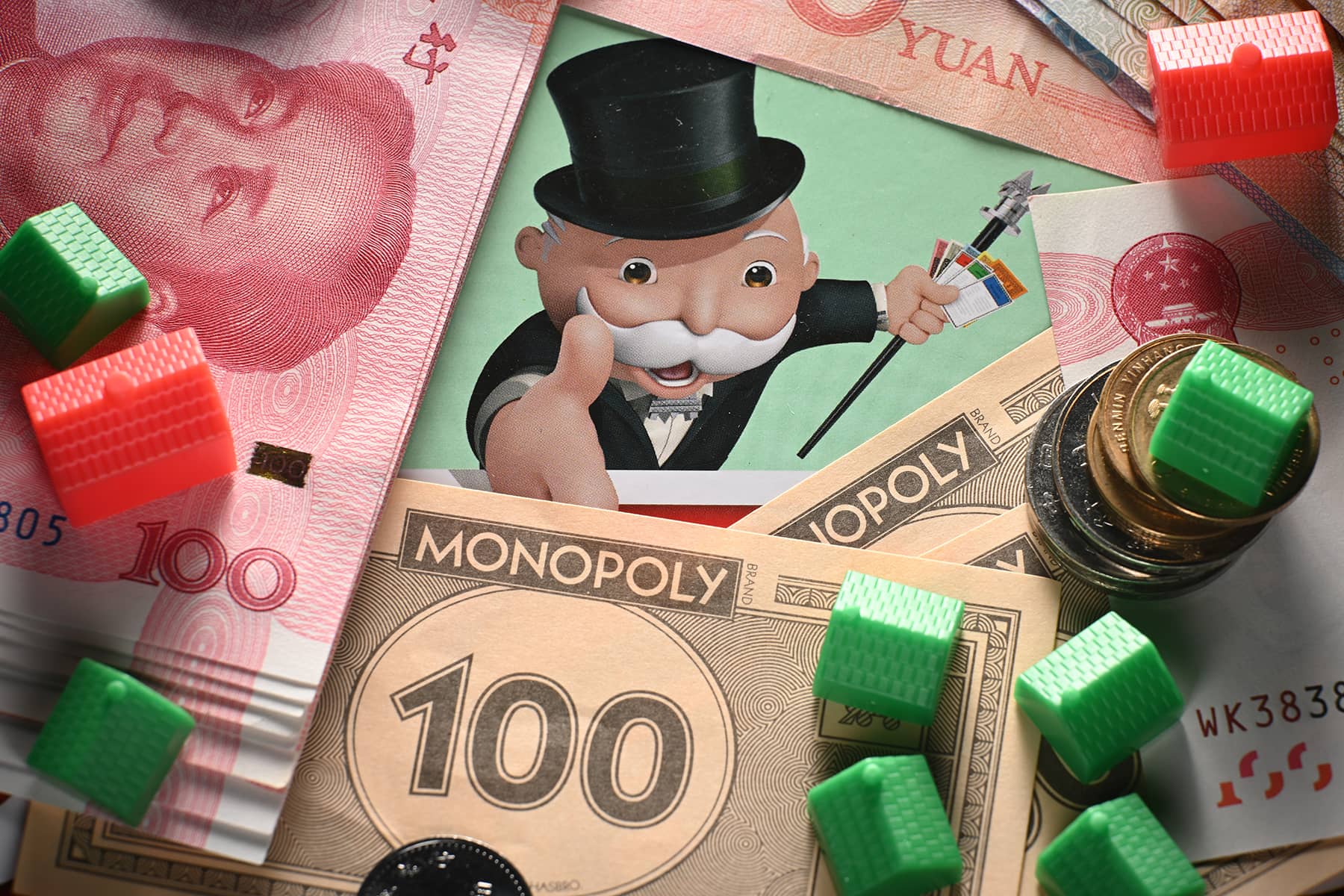
Why are we using tax policy to subsidize giant American corporations in their dependency relationship with the Communist Chinese dictatorship?
For 30 years, American corporations have been helping build China into a massive industrial empire while collapsing manufacturing capacity here in the United States. That country now has a stranglehold on things essential to America, from pharmaceuticals to electronics to consumer goods, all because of a neoliberal fantasy that if we helped them become wealthy through trade they would become more democratic.
American politicians in the pocket of big business went along with this bizarre plan to increase corporate profits and cut US labor costs, and we now see the extraordinary damage it has done to our working class people and our nation, all while strengthening a brutal overseas authoritarian regime.
In recent weeks, China has been busted for running a police operation in New York City to harass Chinese dissidents – they are doing this all over the world, according to The New York Times, has again explicitly threatened war against Taiwan, and two weeks ago committed a hostile interception of US aircraft in the region.
Yet America is China’s largest financial supporter, having largely funded that country’s government and growth into a modern economy by moving over 60,000 US factories there since the beginning of the neoliberal Reagan Revolution.
As the Council on Foreign Relations reported, “U.S. manufacturing employment dropped from 26 percent of the workforce in 1970 to 8.5 percent in 2016.”
When I lived and studied in Beijing in 1996, that country made and exported almost nothing: the tallest building in the city was an American hotel at 10 stories (I used to eat dinner there). You could walk the streets for hours and not see a single car: the major thoroughfare in front of Tiananmen Square was a sea of black bicycles.
And American stores in 1996 were filled with American-made products. Sam Walton’s Wal-Mart stores sported banners proclaiming “100% Made In America” (the title of Walton’s autobiography).
Today, however, it is almost impossible to find products not made in China in most American stores; without cheap Chinese goods, everything from Walmart to Amazon to your local dollar store would be mostly empty shelves.
If this seems crazy to you, you’re not alone.
From 1793 until 1996, when President Bill Clinton signed NAFTA and GATT/WTO, the United States had protected its domestic industries and workers by leveling the playing fields of labor and manufacturing costs.
This was mostly done by tax law, through country-of-origin regulations, and import tariffs. Alexander Hamilton laid it out in 1793 with his Report on American Manufactures and President George Washington adopted the protectionist policies that built America for over 203 years, as I lay out in The Hidden History of Neoliberalism: How Reaganism Gutted America.
From the 1920s to the 1990s, America was the world’s largest importer of raw materials and largest exporter of finished goods. American-made products were available in every country in the world, defining the standards of excellence and quality. We shipped steel ore into the country and shipped out washing machines, cars, and televisions to the world.
As a result, America was the first nation in world history to have a middle class representing over 50 percent of its population. Unions thrived, as did businesses both small and large. The rich still got rich, but working people saw their wages rise even faster than wealthy people between 1930 and 1985.
Then came the Reagan Revolution and neoliberalism, the system under which we’re still struggling.
With the stroke of a pen in 1996, signing the NAFTA agreement President GHW Bush had negotiated, President Bill Clinton turbocharged Reagan’s plan, putting the interests of the world’s largest multinational corporations (and campaign donors) above those of both America’s small and medium-sized businesses and America’s middle class while creating the “giant sucking sound” that presidential candidate Ross Perot predicted in 1992.
American manufacturers flocked to Mexico in 1997, but China was still struggling to catch up. Just four years later, however, President George W. Bush gave them everything they needed to become a major world power that could threaten both Taiwan and the US itself.
In 2001, China’s GDP was around $2 trillion. That year, President George W. Bush pushed hard for China to be admitted into the World Trade Organization (WTO) so that American companies could use cheap Chinese labor; it was admitted in December of that year. By 2005, its GDP was at $3 trillion; it hit $5 trillion in 2010, $10 trillion in 2015, and is expected to overtake the US this year.
But rebuilding America’s middle class (which is now down to 45 percent of us, from around 60 percent when Reagan took power in 1981) isn’t the only reason to reconsider our policy of giving tax and other advantages to companies that have moved their manufacturing to China or source products almost exclusively from that country.
China’s leader, Xi Jinping, has succeeded in changing that nation’s laws to essentially make himself emperor for life, emulating the late Mao Zedong. While that hardly comports with American notions of democratic governance, the larger reason it should alarm us is that he’s turned China into an authoritarian strongman state.
Even benevolent dictatorships (an oxymoron, but many claim the title) that are popular with their people are inherently unstable because there’s not a transparent electoral system in place to provide for succession. The resulting power vacuum produces crises like we see today in Sudan, where the absence of long-time (30-year) strongman President al-Bashir has led to what’s evolving into a civil war.
While strongman governments and fascist movements around the world love to portray democracy as “weak” or “unstable” because of frequent changes in leadership, democracies are actually the most resilient and stable forms of government over the long term exactly because of regular and peaceful transitions of power. They are, as John Adams famously said, “Governments of laws, not of men.”
This is not the case with China, which we rely on for most of our nation’s manufactured goods, or Saudi Arabia, which we rely on for oil (even though we’re technically energy independent: Trump changed our laws so domestic producers can legally export unrefined petroleum products, throwing us back into a Saudi oil addiction).
China has recently made multiple military threats against the US, but the biggest danger to America’s sovereignty and stability isn’t from a Chinese nuclear missile. It’s what would happen if China were to cut off supply lines of Chinese goods — everything from household goods to pharmaceuticals to electronics/phones/computers — leaving us with an explosion of panic buying and shortages.
Up to this point, the Chinese government has been restrained from this action by the economic damage it would do to themselves. But over the past two decades, through initiatives like Belt and Road and others, China has built deep and strong trade relationships with almost every other country in the world.
While apologists for neoliberalism will assure you that making things in the US would mean the end of cheap goods in our stores, anybody who was alive in the 1980s and 1990s when Walmarts were filled with affordable US-made products can tell you how laughable that is.
The transition away from dependence on China for manufactured goods shouldn’t be sudden or radical: opening a trade war would destabilize both countries and disrupt the world in a way more likely to provoke hostilities than prevent them.
But American lawmakers should begin working steadily and carefully toward removing tax and other incentives to do business in China that US corporations currently enjoy, while shifting those incentives to this country. President Biden’s Build Back Better “American content” provisions are a great example and a great start.
Rebuilding American manufacturing not only returns jobs to our country, but also keeps the substantial profits from manufacturing here in America. Instead of strengthening China, we would be rebuilding our own nation from the damage of Reagan’s neoliberalism.
But there is a long way to go, and every day it seems China is pushing harder to export their style of authoritarianism into this country and threaten Taiwan.
Cinemato and Zorro Gabriel
© Thom Hartmann, used with permission. Originally published on The Hartmann Report as It’s Time for American Business to Stop Subsidizing the World’s Largest Dictatorship
Subscribe to The Hartmann Report directly and read the latest views about U.S politics and other fascinating subjects seven days a week.















